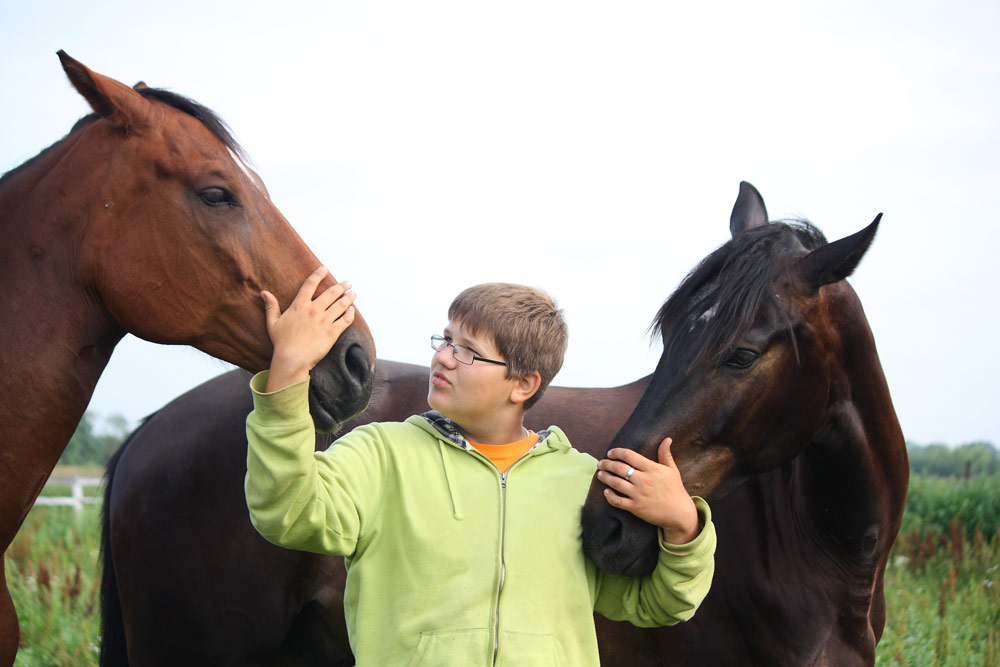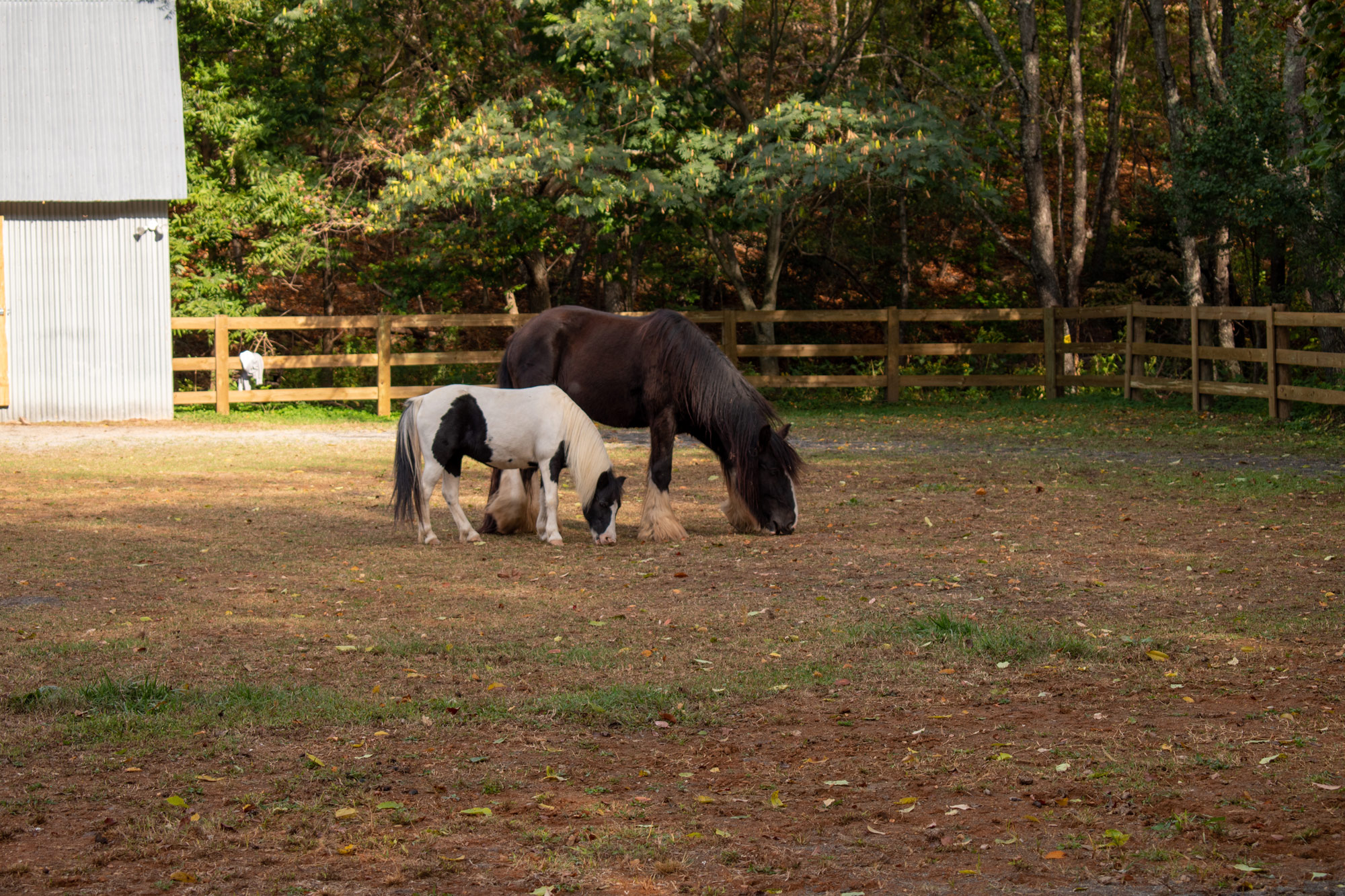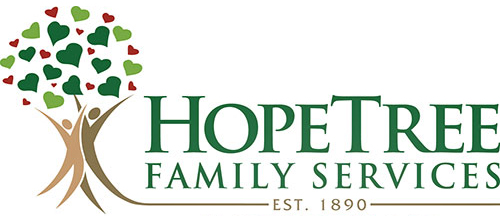Equine-Assisted Psychotherapy is a form of mental health psychotherapy featuring interactions with equines.
About the Program
Equine-Assisted Psychotherapy is a form of mental health psychotherapy featuring interactions with equines. Clients work towards therapeutic goals in a session by interacting with the equines. It is an alternative to traditional, sit down talk therapy; however, the goals are the same as talk therapy.
During sessions clients often see the equine(s) as metaphors to something related to their goals. Some activities are designed and incorporated by the team to help the client reach their therapeutic goals, but these activities never involve mounted work.
Why Use Equines?
Equines can give immediate feedback on their environment by displaying their choices. For example, if the equine does not feel safe, then they will move away. This often enables clients to learn relationship building skills and self-awareness in one of the best possible ways-experientially with immediate feedback.
This experiential feedback in real time enables clients to adjust their behavior and learn to regulate emotions to build relationship and trust with the equine. This is often an invaluable lesson that can be transferred to human relationships in their lives.

What is Involved
- Clients work towards therapeutic goals in a session by interacting with the equines. It is an alternative to traditional, sit down talk therapy. However, the goals are the same as talk therapy.
- During sessions clients often see the equine(s) as metaphors to something related to their goals. For example, the equines could be seen as an emotion, a person in their life, a goal they want to achieve, etc.
- Sometimes activities are designed and incorporated by the team to help the client reach their therapeutic goals, but these activities never involve mounted work.
- The equine(s) are unrestrained so they may make choices freely about how they would like to interact and move about in the space. This gives them the opportunity to truly be who they are. Because equines are prey animals with extremely attuned awareness of body language and environment for safety and survival, we respect and encourage their free choices in how they interact. Equines are always given enough space to move about freely in a way that is safe for both them and humans that are also in the space.
Who is Involved
They are equal to all other team members. They can be horses, donkeys, or mules, hence the term-equine. Their job is to just be who they are!
They make observations about the equine behavior and design activities in the therapy sessions in conjunction with the goals of the client. Their job is also to ensure the safety of all other team members (including the equine) and clients by watching and reading the equine behavior and anticipating possible safety issues.
The minimum qualifications for an equine specialist include: 6,000 hours of hands-on equine experience, as well as continuing education in equine psychology, groundwork experience and reading equine body language/nonverbal communication.
*To be certified to practice EAP, the equine specialist must complete online pre-training, a 5-day (40-hour) hands on training, as well as pass a post-training exam and complete a professional portfolio to include proof of qualifications. The equine specialist must do continuing education and training to renew certification every 2 years. Advanced certification and trainings are available.
They help the client reach their therapeutic goals by incorporating the interactions with the equines into the sessions. Their job is also to support the emotional needs of the client as they interact with the other members of the team.
*The minimum qualification for a mental health professional is to be licensed in their mental health field (or under supervision for a license) to practice psychotherapy under the governing body of their state. This can include: a Licensed Professional Counselor, a Licensed Clinical Social Worker, or a Licensed Clinical Psychologist.

Let's Get Started!
If you have any questions, please contact:
HopeTree’s Equine Team
Equine@HopeTreeFS.org
540-824-5296
